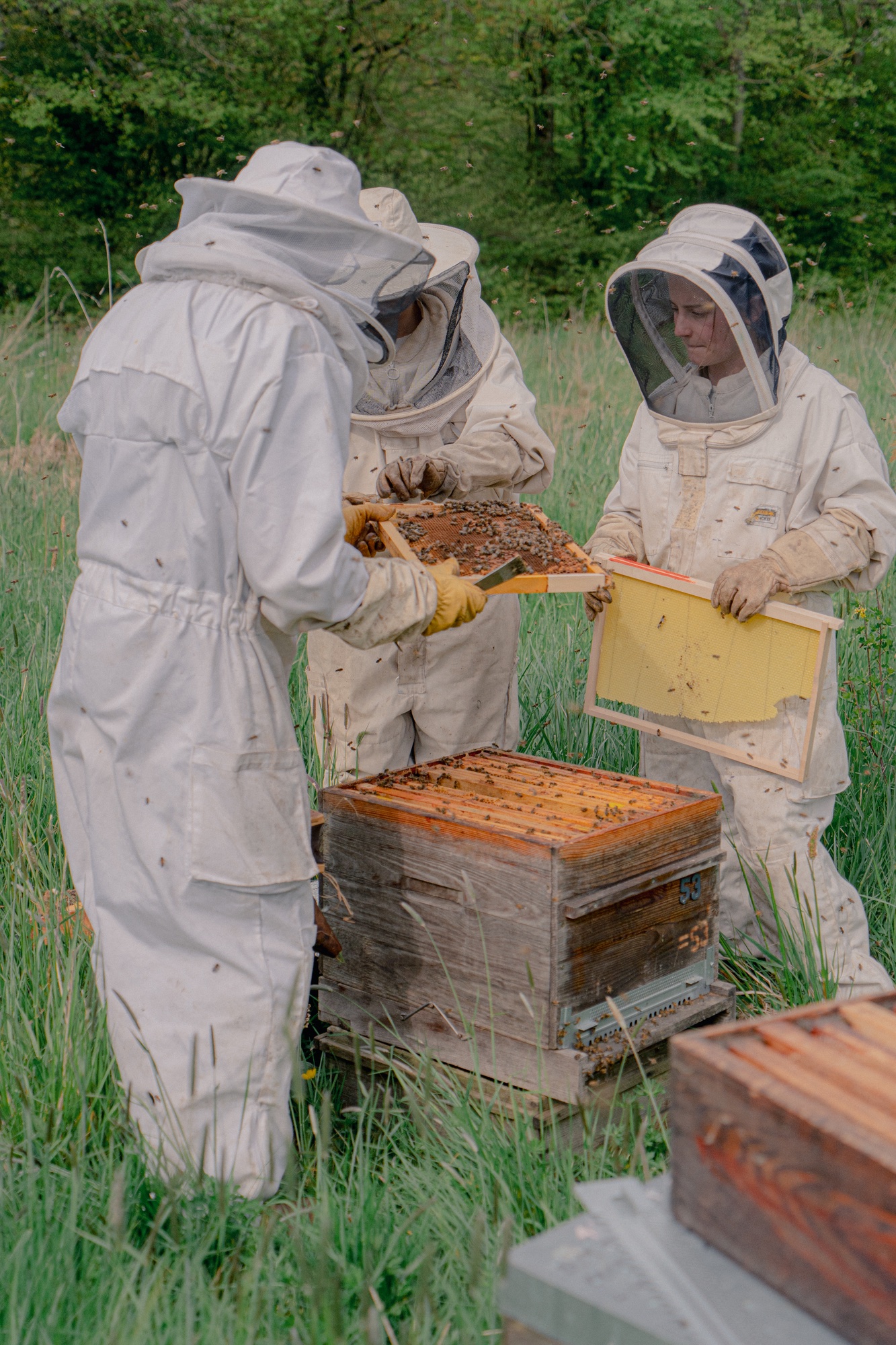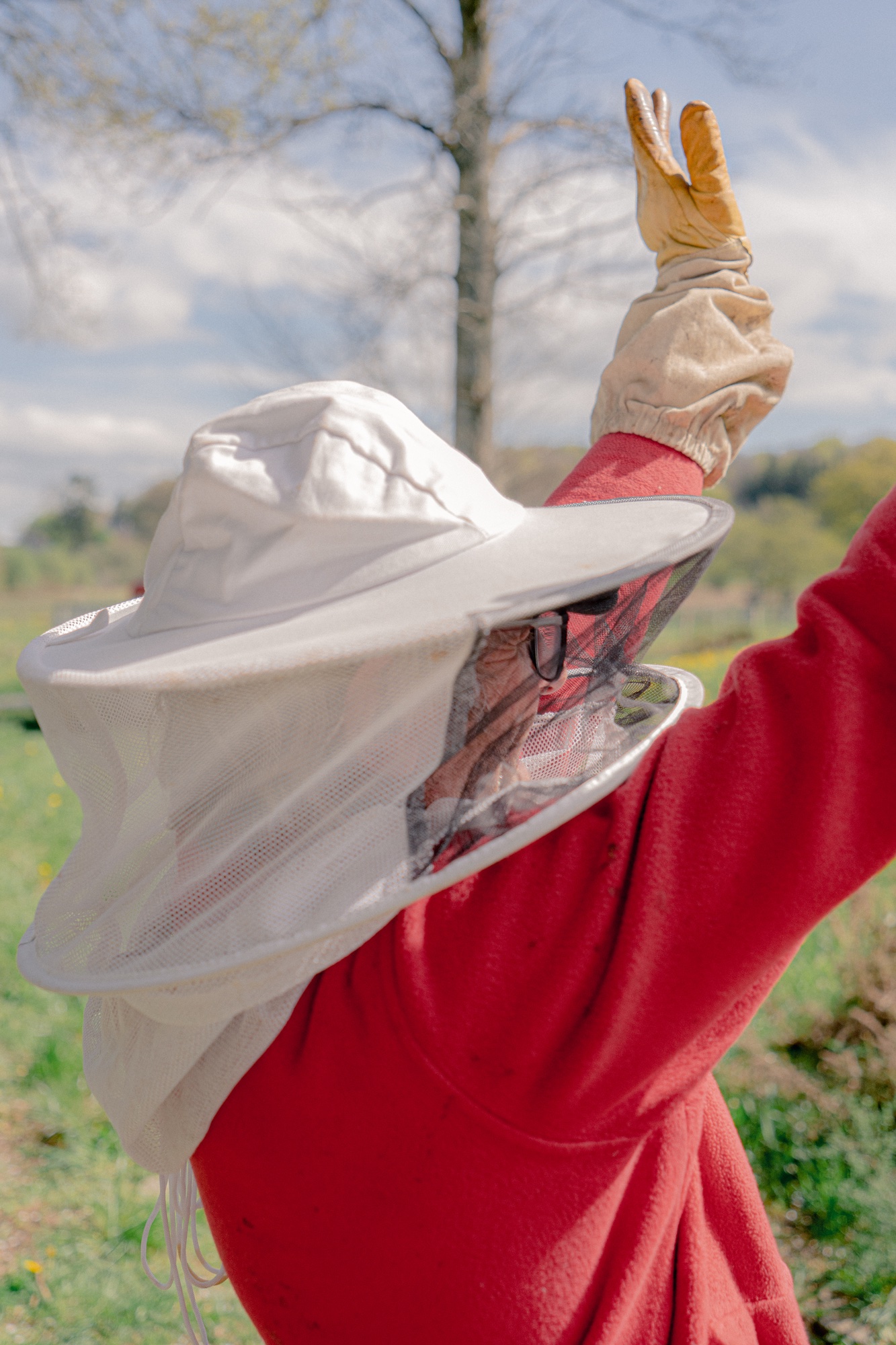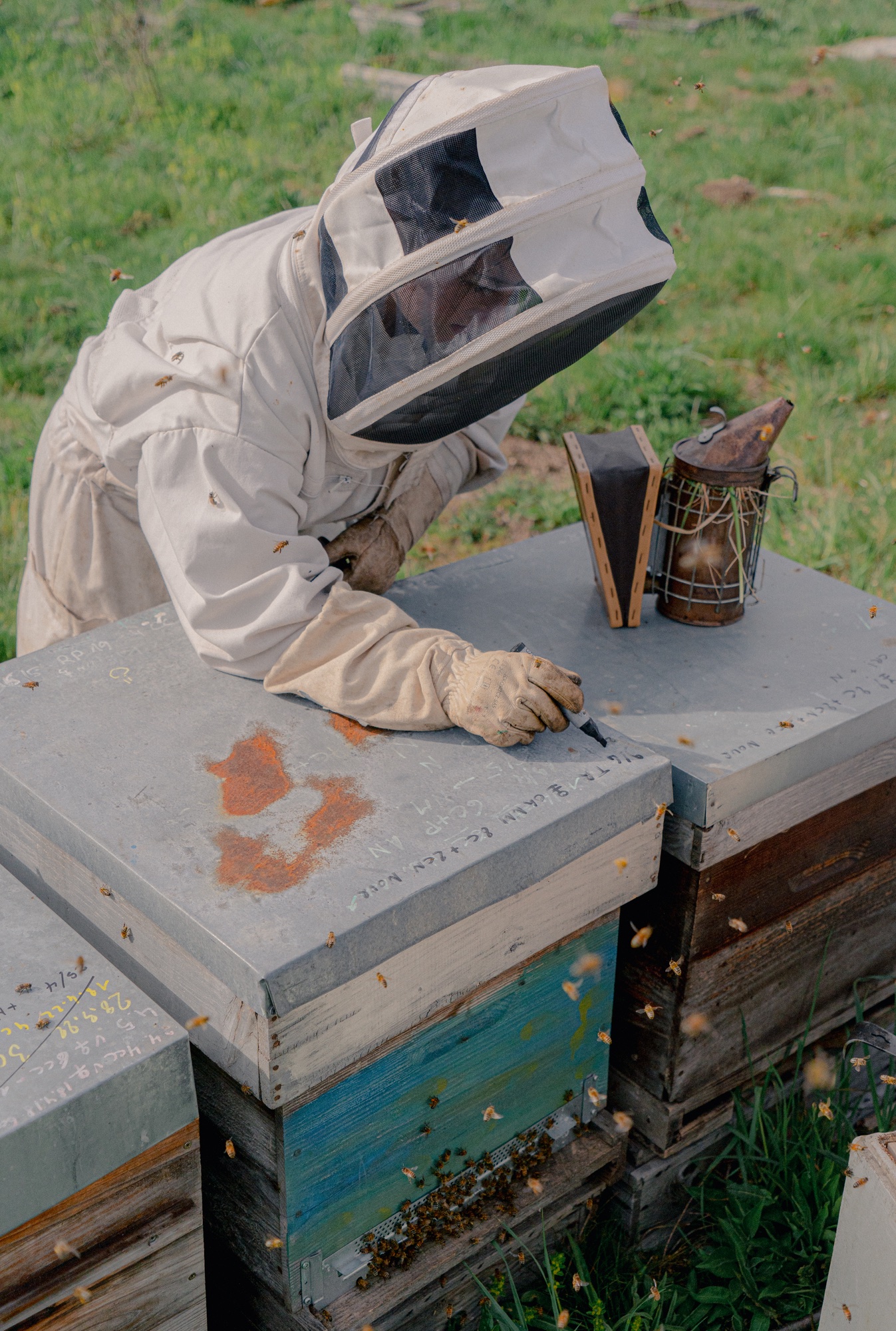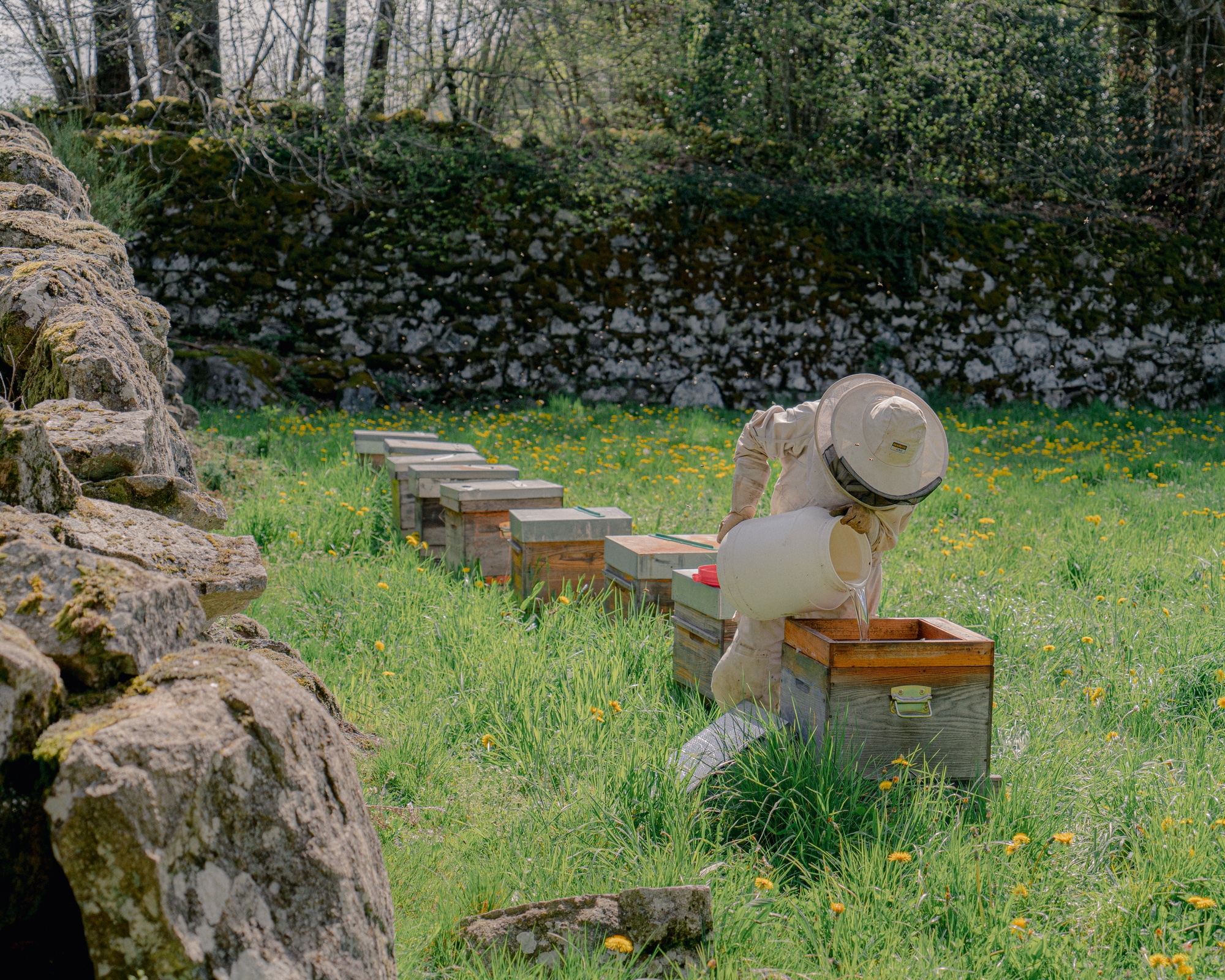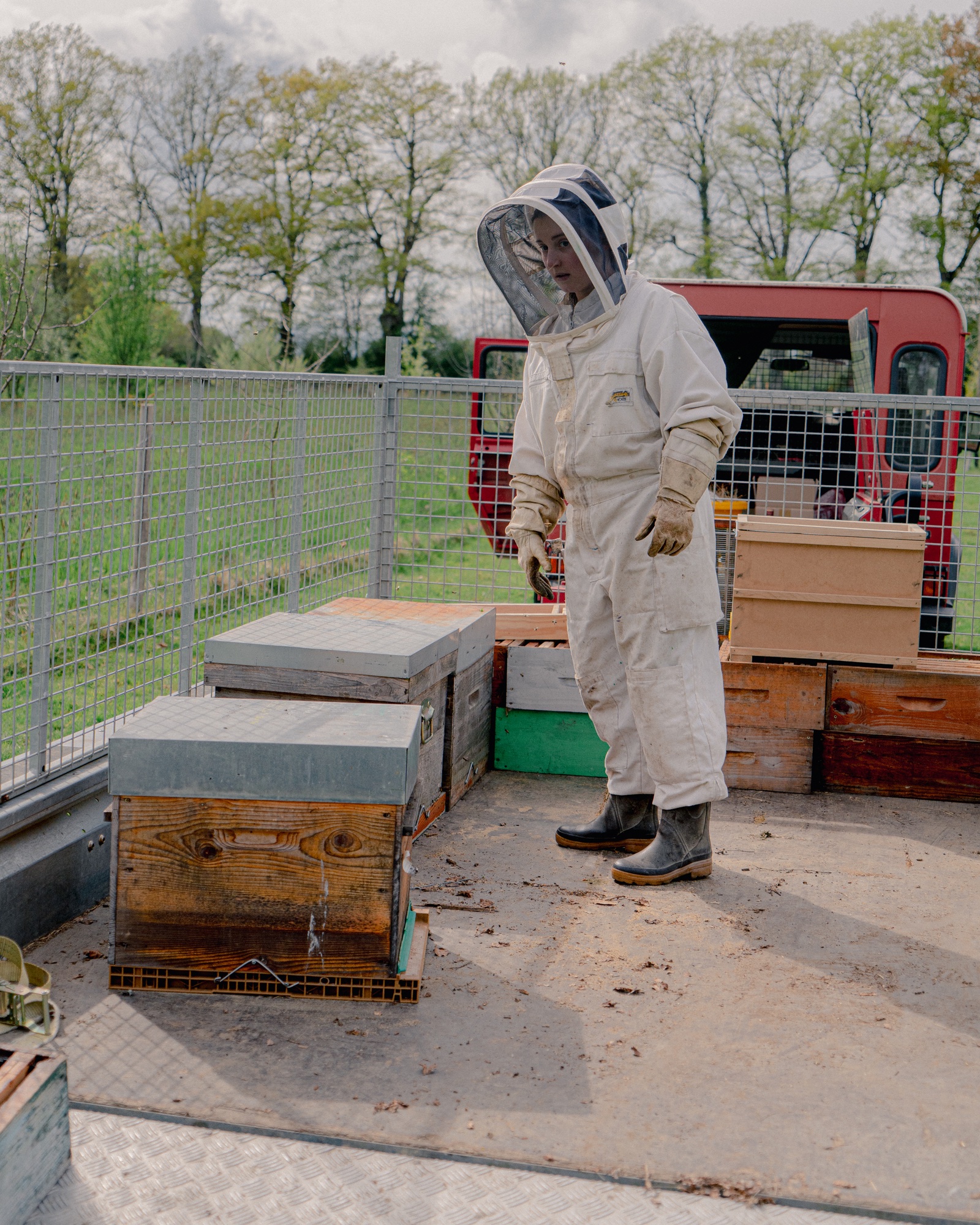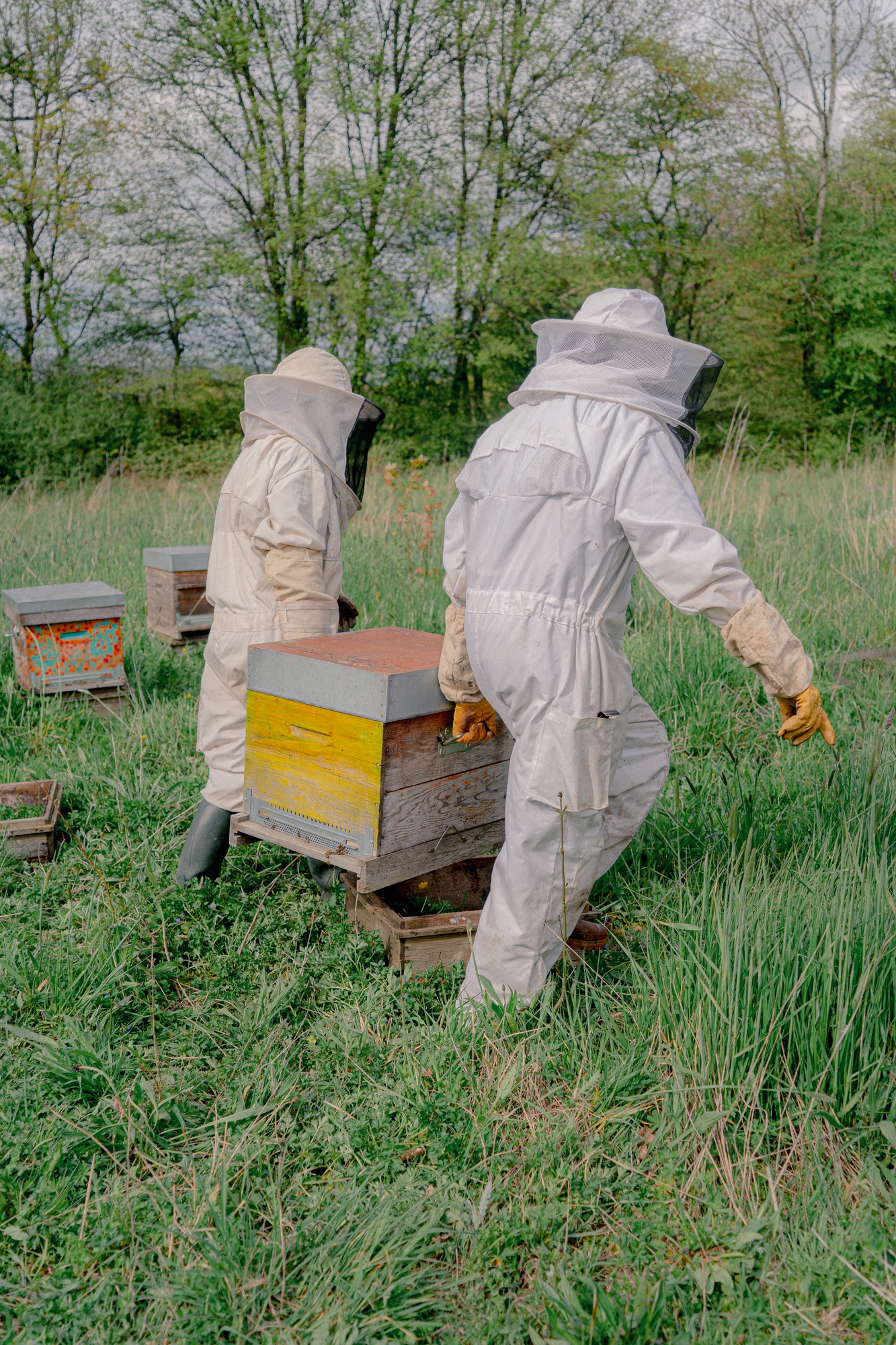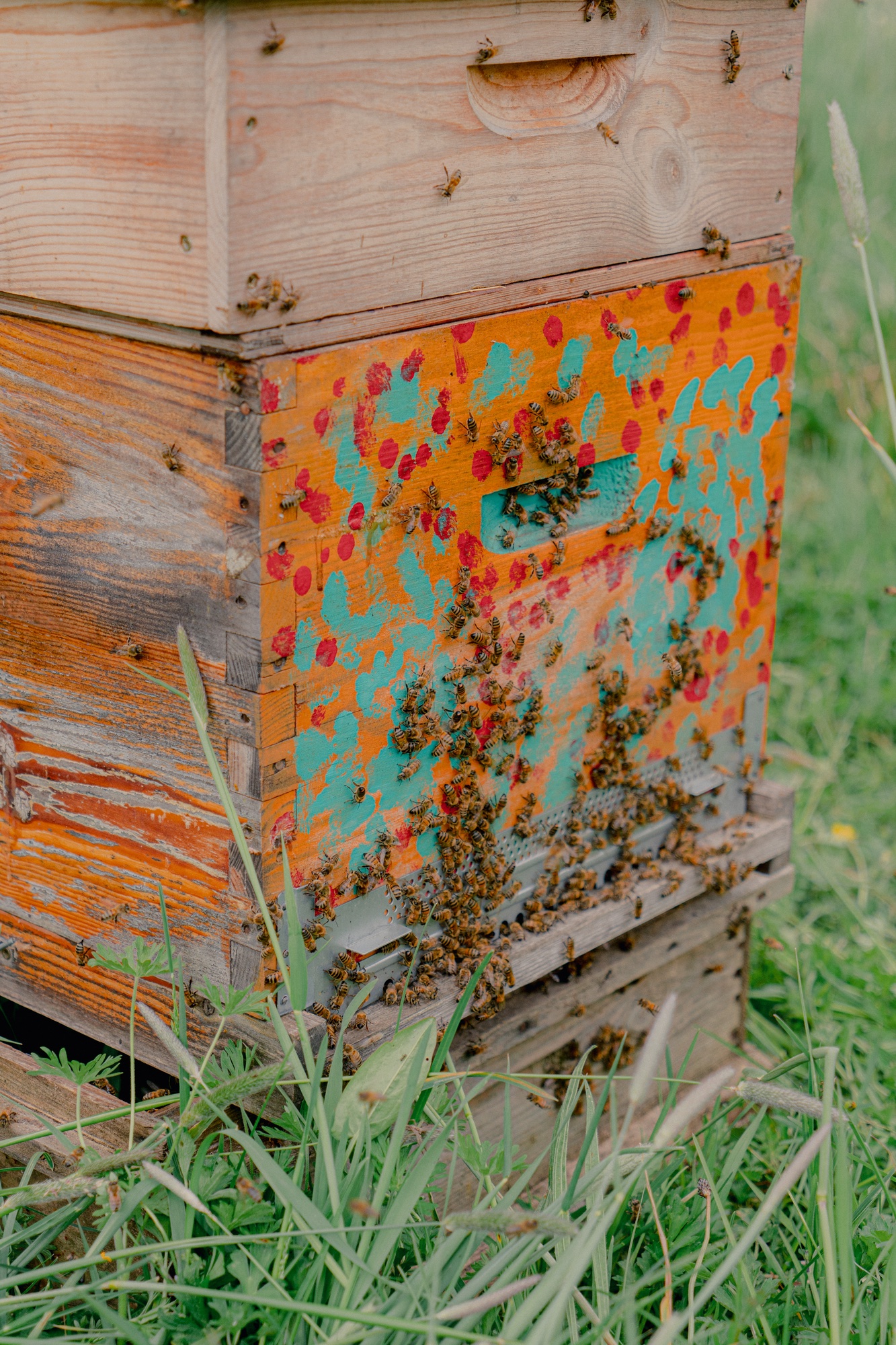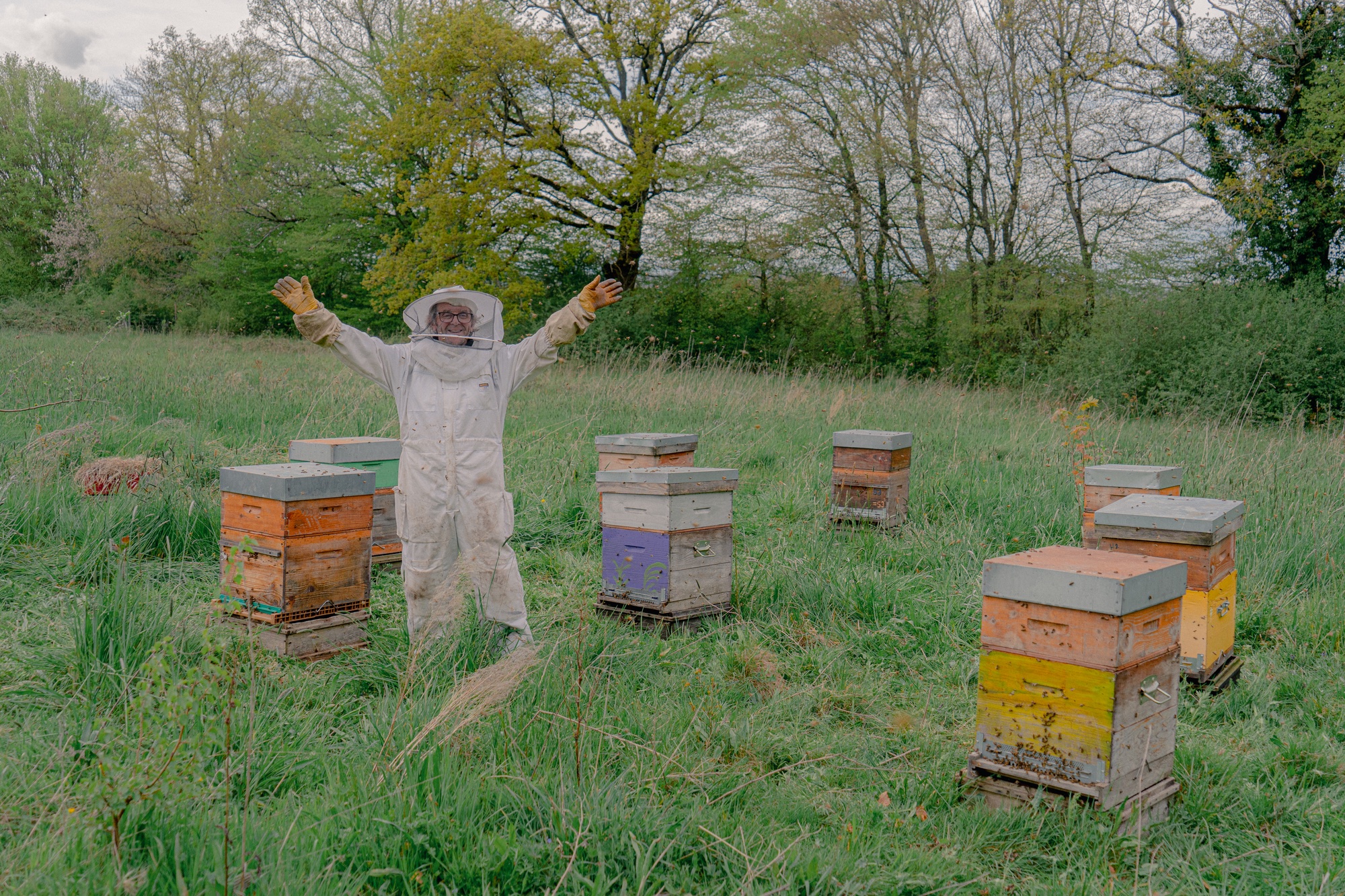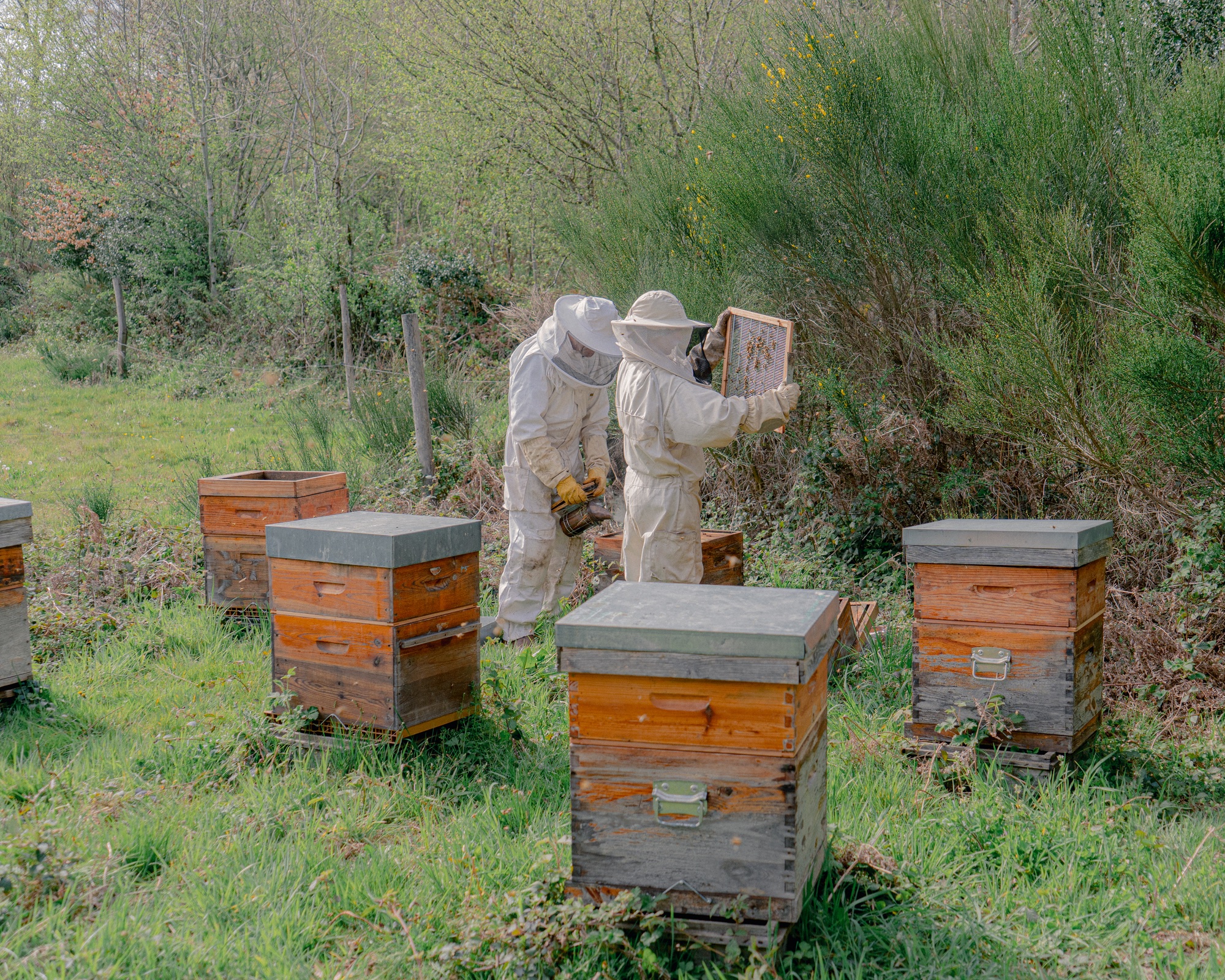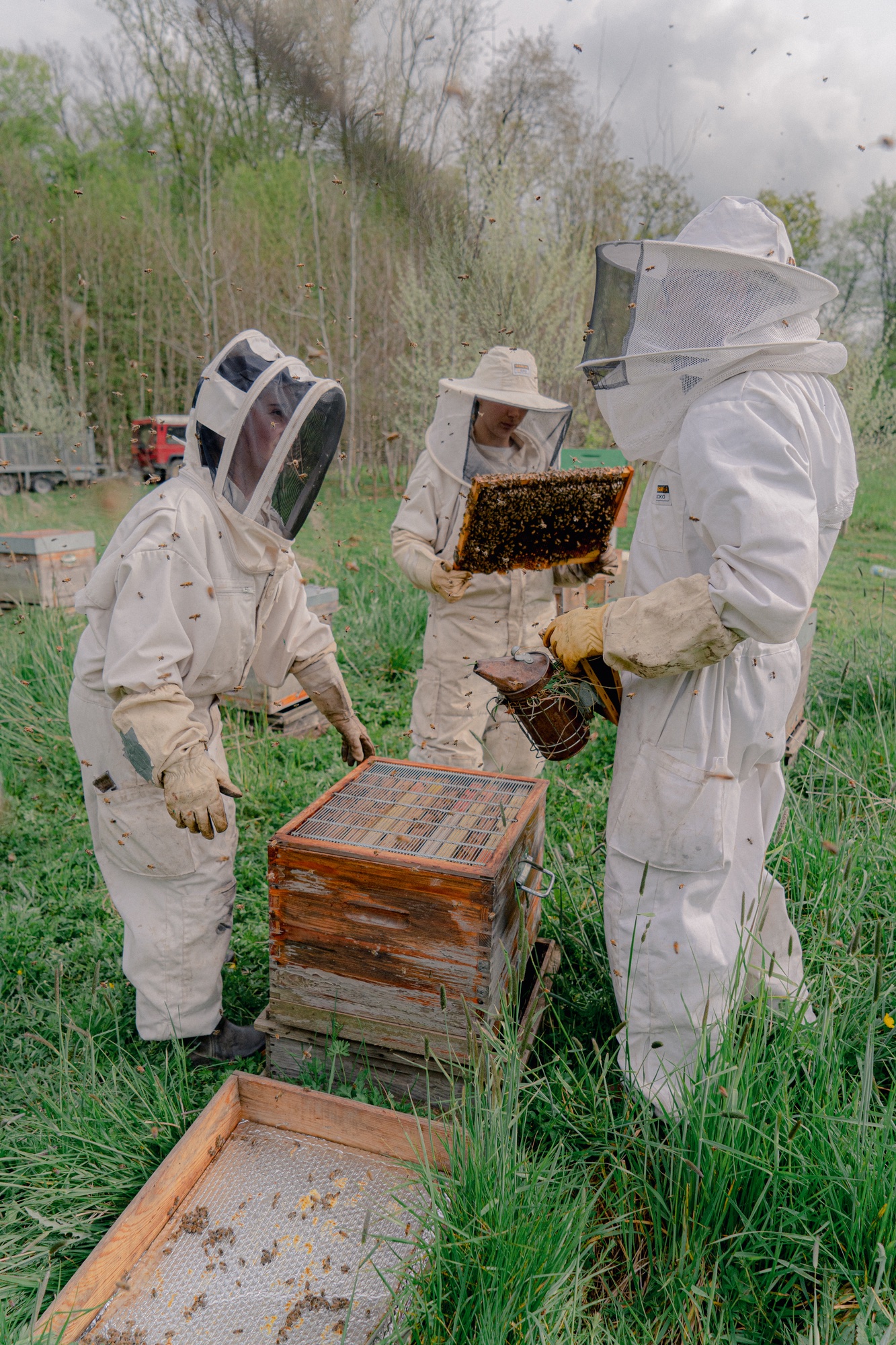A Sweet Exchange
“Bonjour les abeilles!” we chant, as Michel opens the hive, carefully leaning the lid against the structure as hundreds of bees begin to swarm around our oddly dressed bodies. Michel insists that all visitors greet the bees this way when a ruche (beehive) is opened. That it’s important to start every exchange with acknowledgement and respect.
Located in Creuse, the second least populated department in the heart of France, Le Rucher Creusois is run by professional apiculteurs Michel and Catherine Blassel. Beekeepers for almost two decades, the couple manage 250 hives across the region, with customers near and far adoring their prize-winning organic honey and other bee by- products.
On top of all the beekeeping though, the couple have taken on dozens of students and apprentices, young and old, city-dwelling and rural – welcoming them into their home and up to their hives to share how rewarding the life of a beekeeper can be. For a week in early Spring, that includes myself, my partner Alice, and Margaret, a recent graduate from Alabama, USA.
On our first day with bee-friendly conditions, we set off in Michel’s treasured 4x4 to check on the health of colonies and to start adding hausses (supers in English) to the hives – the top boxes that honey is stored in by the bees and then harvested for human consumption in the months to come.
Suited up and inspecting hives, Michel deftly goes about his work whilst patiently explaining what he’s doing, why he’s doing it, and sharing everything he knows about the incredible lives and work of honeybees; his awe of these insects and their behaviours infectious. Spotting the queen of each colony quickly becomes the favourite task of our group – the regal longer-shaped bee being central to the health and order of a hive. It is quickly clear that for Michel, working with bees is a true collaboration. A relationship to cherish. Always making sure the health of the hive comes before any harvesting.
He teaches us too about the enormous difficulties honeybees and other bee and insect species are facing. Whether it’s the invasive bee-predating asian hornet that has found its way into France in recent decades, chemical sprays used on fields, or climate change causing unseasonal and extreme weather affecting the conditions and flowers available.
Fortunately for these honeybees, the area surrounding Le Rucher Creusois has an abundance of flora and relatively few farmers using pesticides. Forest still covers much of the land, and pastures are covered in wildflowers like pissenlit (dandelions) – a rich environment compared to what many insects have to deal with across Europe.
Locals too are becoming more aware of the importance of pollinators. More and more, Michel tells me, farmers and growers are coming to him, calling him up to ask to have hives on their land to help with pollination in exchange for a safe and bountiful location for the bees. On one occasion we travel for over an hour to transport hives to a beautiful new site at an organic pépinière (plant nursery) – them eager to soon have thousands of vital pollinators living on their land.
During a time when 1 in 10 bee and butterfly species are threatened with extinction, and insects species are showing stress and decline all over the planet, it is this building and strengthening of relationships between people and pollinators that feels the most vital part of Michel and Catherine’s work. Something that is needed everywhere, more and more, if we are to keep and restore the precious ecosystems that we all rely on more than we know.
For the three of us finishing our exchange at Le Rucher Creusois, we all leave with a new-found respect for an incredible insect, and, of course, a few jars of delicious honey.






